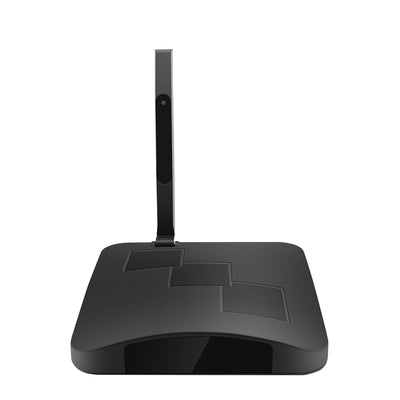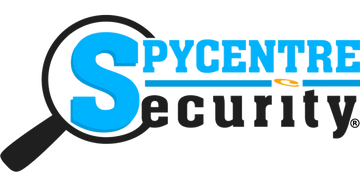Many states allow employers to record all building common areas, including offices. Most of us are used to being monitored when using the company's computers, but it is unnerving to think of being secretly monitored in the office.
Generally, any monitoring should only be done as a condition of your employment. There are very narrow lines where spying is allowed. Regardless of your position in an organization, no senior official or executive has the right to record you unless done lawfully.

Sometimes corporate oversight goes beyond pulling your cell phone logs. Being recorded inside the house, car, or office can be a dramatic experience. In the workplace, it could be your employer, a jealous ex, or corporate spies who install eavesdropping devices and surveillance devices to try to spy on other people.
Spies will often target cell phones, phone lines, and other electronic devices using their listening devices. For example, they might position a camera to capture the passwords typed on a keyboard. How can you know if hidden spy cameras are watching you and listening devices storing every word you say?
This post will help you uncover some of the most helpful techniques for detecting hidden cameras and listening devices. Effective bug detectors can prevent others from honing in on your confidential business meetings.
HOW TO DETECT HIDDEN LISTENING DEVICES
Do you think there's a listening device hidden somewhere in your office? Do your fear that your micro-managing executives are keeping a close eye on you? It happens at countless offices and even multi-national organizations where seniors or lower-level executives spy on other people in business.
Occasionally, we hear about it in the news when large corporations get busted for spying on unions. Spying on union activities became illegal with the National Labor Relations Act of 1935. Corporations will still do everything they can to prevent unions from forming.
Generally, spying on employees is to improve performance through micro-management. However, most employees feel that it is an invasion of privacy, and it typically indicates a toxic work culture. So, how do you spot wireless devices, a listening device that looks like hidden microphones? Here are 5 steps:
1. USE AN ELECTRONIC BUG SWEEPER

Using an electronic radio frequency detector will help significantly. An RF bug detector is the easiest way to find hidden cameras, audio bugs, and such devices, especially if they are transmitting a radio signal. If someone has installed a hidden camera or even a secondary device (components of recording devices), they will be using RF signals to monitor the incoming data.
You can use a bug sweeper if you think the office is under surveillance. The sweeper will help detect listening devices, like audio bugs or hidden cameras, when active by catching onto very faint tones and wireless signals. Our best bug detectors have sensors that can differentiate the signal produced from WIFI, 2G, 3G, 4G, 5G, and even blue tooth signals to help detect the most common spying devices. Some of our bug detectors can even sniff out GPS trackers. If you are serious about counter-surveillance, you need a good bug detector.
2. LISTEN FOR ELECTRONIC INTERFERENCE

Intruders and office spies can hide eavesdropping devices nearly anywhere, including the ceiling, smoke detectors, light switches, and USB power banks. Listening for unusual sounds and interference with your electronics is often one of your first clues that something is amiss.
The notorious KGB spy, Robert Hanssen, mentioned that he had suddenly heard strange interference coming through his car radio, which made him suspicious that the FBI was spying on him. It's not just cell phones hacked with a GPS tracking device anymore. The spying technology has improved significantly, opening doors to more discreet and homogeneous spying products implanted on your smart devices through spyware.
Sometimes, a hidden camera will be staring you in the face, and you won't realize it. The radio frequencies emitting from it might be the first indication you have of a potential problem with your privacy. Here at SpyCentre Security, we teach our customers how to sweep a room for camera lenses. But signal interference might be the clue that gets you to take action.
3. EXAMINE SMOKE DETECTORS AND WALL CHARGERS AND DIGITAL CLOCKS

Smoke and fire detectors are among the popular tools of private investigators. Most people think a "bug" is a small listening device hidden in a book on their bookshelf. It's much more likely that the eavesdropping device looks like a USB stick, a digital clock, or a phone charger. Wall chargers are an excellent choice for video. The lens can be concealed well, and it can stay plugged into a wall outlet for months without suspicion.
4. LOOK FOR DECORATIONS THAT SEEM OUT OF PLACE

A very common ruse that spies will use is disrupting the phone, utilities, or HVAC inside an office and then showing up as air conditioning repair people or phone company repair techs to repair it. That's a creative and effective method of installing eavesdropping devices inside an office. Keep your eyes peeled for new items added into the office environment that was not there before. Like clocks, bluetooth speakers, and even functional power banks that can charge multiple cell phones.
Some organizations have been caught doing such things to their competitors in the industry. So, remain prepared for it in any situation. Train your staff to vet all workmen coming and going from your company properly.
5. LOOK FOR UNUSUAL WIFI SIGNALS ON YOUR LAPTOP

In some cases, the router itself can be used to spy on the room. Working from the internet footprint requires more technical surveillance countermeasures. Try not to alert the perpetrator behind the act since you want to catch them with the help of authorities. Check for any small pinholes that may house an audio bugging device or a hidden camera surrounding the unusual WIFI signal.
Move your laptop around, and determine signal strength. This will let you triangulate the source. Find out what hidden video cameras and eavesdropping microphone devices look like. That way, you can quickly identify the source of the unusual WIFI signal and track the eavesdropping signal to the device that's perpetuating the signal.
ARE YOU A TARGET FOR SPYING?
Can you think of why you might be a target for spying? Most people live boring lives that aren't worth spying on. What puts you at higher risk for spying?
Some of the main reasons why you may become a target for spying include:
-
High net worth
-
Owning a company
-
Getting divorced
-
Being a witness, attorney, police officer, judge, politician, scientist, politician, or journalist
-
You or your spouse is in an affair
-
Owning sensitive personal data, secretive responsibilities
-
Being a legal suspect
-
Petitioning for children's sole custody
-
Being a victim of a stalker
-
Your neighbor may complain about loud noises from your apartment.
-
An office colleague might want to gather evidence about your toxic behavior or attitude.
-
Active Litigation

CAN MY BOSS RECORD ME AT WORK?
Employers are generally allowed to record videos in the common areas of their buildings. While private areas such as the bathroom are protected, most bosses use everything from remote-work tools to video cameras to monitor their employees.
If your boss records you at work without your knowledge, that information may not be admissible in court, depending on your state laws. However, many employers require your consent as a condition of employment.
IS IT ILLEGAL TO RECORD AUDIO AT WORK?
The laws vary from place to place and state to state. It's legally permissible to install CCTV cameras and monitoring devices in different workplaces for safety concerns.
But, that doesn't allow any employer to invade workers' privacy even in the workplace. According to the law, recording video and audio is illegal in any area where workers expect privacy, restrooms, changing rooms, locker rooms, etc.
CAN A PRIVATE CONVERSATION BE USED AGAINST ME?
Under the Federal wiretap act, it is illegal to secretly record electronic communication that the other parties expect to be private.
Some states have single-party consent laws. This means that only one party in the conversation needs to be aware of the recording. These recordings can be used in states like North Dakota, Ohio, Rhode Island, and Texas in legal proceedings. A lawyer/attorney can use a private conversation against you in the form of testimony, or evidence, that you did not know had been recorded. It's possible to admit audio recordings as evidence during legal proceedings.
However, you should know that it's not permissible and even illegal in 2-party states like Florida and Pennsylvania without first obtaining the consent of both parties. If privacy invasion is involved and the recording party is to blame, you can raise serious concerns legally.
HOW TO BLOCK OUT LISTENING DEVICES
While true signal jammers are not allowed in the United States, a white noise machine can make an excellent audio jammer to inhibit recordings. Buy an audio jammer that is effective and reliable. Discreet audio jammers hide in plain sight similar to and create cover noise for a given radius. The downside of a legal audio jammer is that it makes constant, low-level background noise. Many people find that white noise to be soothing, but it is a necessary trade-off when increasing your security.
Check if the effectiveness of the audio jammer is as depicted by the brand. Place an audio recorder on the table and speak with someone in a normal tone. Play the recording back and see if the white noise generator covers up the conversation. If not, turn up the white noise generator. Rinse and repeat until you get the desired effects
WHAT DOES A LISTENING BUG (EAVESDROPPING DEVICES) LOOK LIKE?
It could be a cell phone in a meeting or even an ordinary-looking pen, glasses, or a car remote keychain. They can also look like power banks, chargers, and clocks. The more innocuous, the better as to not raise suspicions.
Discreet listening devices come in the form of some of the most boring electronics. Some of these devices are equipped with massive batteries and expansive memory to allow less downtime and upkeep.
IS THERE AN APP TO DETECT LISTENING DEVICES (SURVEILLANCE DEVICES)
We have not encountered a good App. However, you can use a lens finder or wireless bug detector to find hidden cameras in your office or home. Shining a flashlight in a dark room can sometimes be enough to find a camera lens, but your best bet is to use a specific device for finding IR emitters. Even if it's small, a hidden video camera lens reflects the gleam of light.
In the past, some smartphone cameras were capable of seeing infrared light. You can test this by setting your phone camera in front of a TV remote and looking for the emitter to flash. More recently, phones now have a filter built in that blocks infrared light, so you need to invest in a suitable device for sweeping the room like the Hidden Camera Detector with IR Finder.
WHAT TO DO WHEN YOU FIND A LISTENING DEVICE?
It would be best if you recorded the incident. If someone has entered your home or workplace to install eavesdropping devices, it's worth documenting how and where you found them. Once you confirm the listening devices, hidden cameras, and other surveillance devices, alert the authorities. Even if the police cannot find the perpetrator, they will take a report for you, helping you to create a paper trail.
Removing a listening bug's power supply can stop the recording. You may also need to disassemble it and remove the battery. In our experiences, spying is generally limited and is targeted at a specific person.
- Shop All Spy Cameras
- Shop Bug Detectors
- Shop Counter Surveillance
- Read more Secure Zone blogs - Click Here


